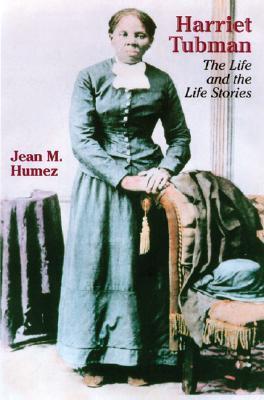
Harriet Tubman: The Life and the Life Stories
Book Description
Step into the shadows of history where courage ignites like wildfire. "Harriet Tubman: The Life and the Life Stories" unveils the relentless journey of a woman who defied the chains of slavery to lead countless souls to freedom. With breathtaking tales of perilous escapes, unyielding faith, and fierce rebellion, this gripping narrative reveals Tubman not just as a hero, but as a strategist who danced with danger. Witness her transformation from an enslaved girl into a legendary conductor on the Underground Railroad. Can the whispers of her extraordinary legacy still inspire a new generation to fight for justice today?
Quick Book Summary
“Harriet Tubman: The Life and the Life Stories” by Jean M. Humez is a multifaceted biography that explores Tubman’s journey from slavery to her role as a central figure in the abolitionist movement. Unlike traditional biographies, Humez weaves together not only Tubman’s own experiences but also the evolving legends and stories told about her, examining how her legacy has been constructed and celebrated over time. The book delves into Tubman’s profound courage, her daring leadership on the Underground Railroad, and her lifelong fight for justice and equality. Through a rich blend of historical documentation, personal accounts, and the oral traditions that kept Tubman’s story alive, Humez illuminates both the real woman and the powerful icon she became.
Summary of Key Ideas
Table of Contents
The Transformation from Enslaved Person to Freedom Fighter
Jean M. Humez’s biography moves beyond traditional historical retellings, beginning with Harriet Tubman’s early life under enslavement in Maryland. The account traces her formative experiences—harsh labor, familial separation, and a life-threatening head injury—that shaped her resilience and resolve. Tubman’s escape from slavery is depicted not as a single act of defiance, but as the genesis of a lifelong commitment to freedom, both for herself and for countless others she would later guide.
The Evolution of Tubman’s Legacy Through Storytelling
The book foregrounds Tubman’s crucial role as a conductor on the Underground Railroad, where she orchestrated at least a dozen perilous rescue missions. Humez details how Tubman harnessed her intimate knowledge of the land, her connections with abolitionists and free Black communities, and her uncanny ability to lead others through danger. At great personal risk, Tubman repeatedly returned to the South, defying slave catchers and the threat of re-enslavement. Her strategic intelligence and meticulous planning come alive through firsthand accounts and oral histories.
The Role of Faith and Community in Tubman’s Leadership
Humez places strong emphasis on the spiritual and communal foundations of Tubman’s life. Tubman’s profound faith in God, often described in her own words, functioned as both guidance and refuge. The collective efforts of a supportive network—family, free Black communities, and white abolitionists—were vital to her success. Tubman became not just a leader, but a symbol of hope and resistance, embodying the power of social bonds in the struggle for emancipation.
Tubman's Strategic Bravery and Resourcefulness
A distinctive feature of this biography is its investigation into the ways Tubman’s life has been recounted and mythologized. Humez analyzes the shifting narratives about Tubman—from contemporaneous newspaper reports and interviews to the stories passed down within families and later mainstream histories. The book explores how Tubman’s legend has been reinterpreted to meet the ideals and aspirations of different generations, revealing the convergence of fact, folklore, and collective memory.
The Continuing Relevance of Tubman’s Life Stories
In its closing sections, Humez brings Tubman’s legacy into the present day. By tracing how Tubman’s stories have shaped public understanding of resistance, freedom, and heroism, the book underscores her enduring relevance. Humez argues that Tubman’s story continues to inspire activism, serving as a touchstone for ongoing struggles for justice and equality. Through sustained attention to both the woman and the stories told about her, this biography offers a compelling meditation on the meaning of heroism and the persistence of hope.
Download This Summary
Get a free PDF of this summary instantly — no email required.





